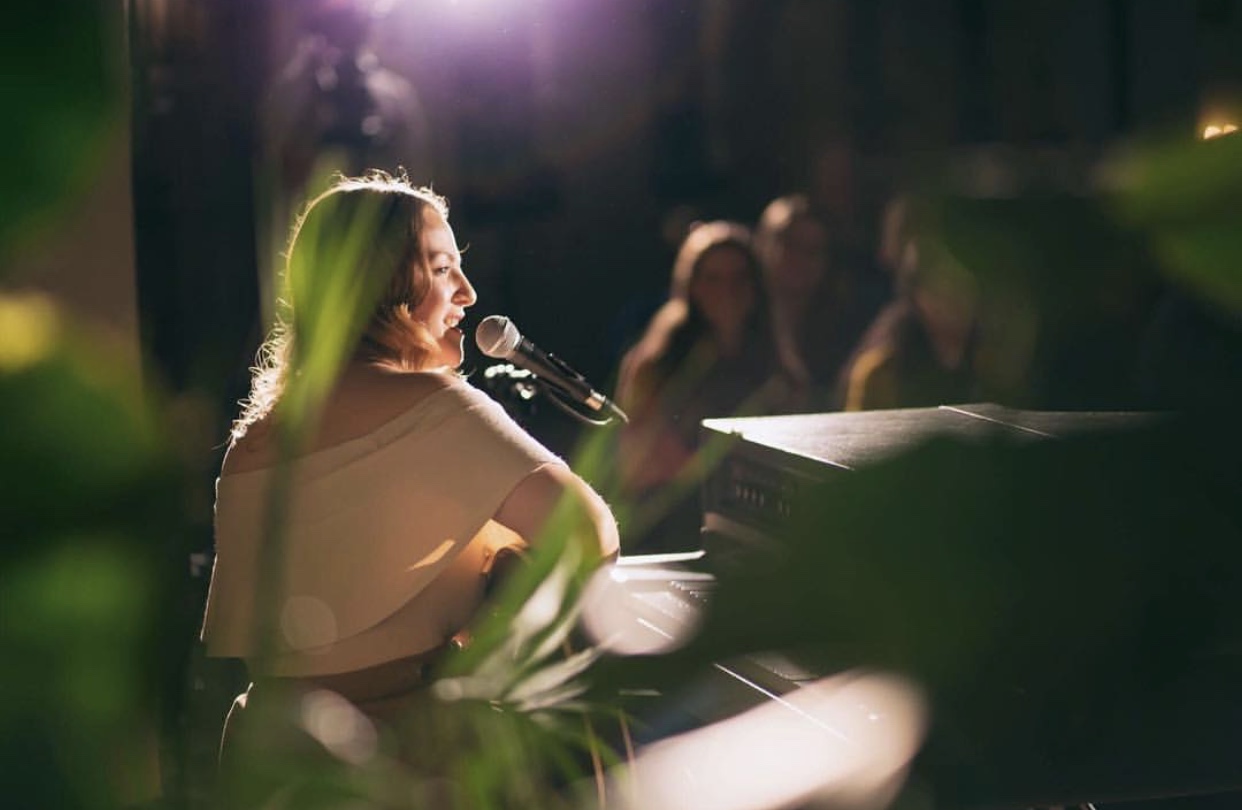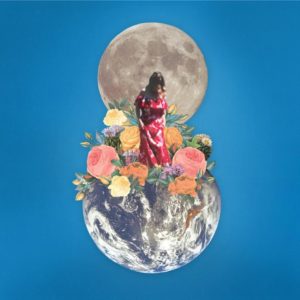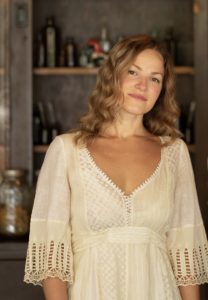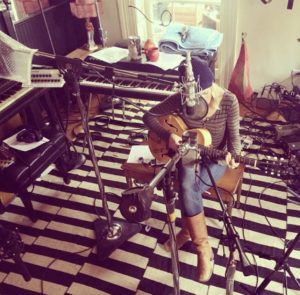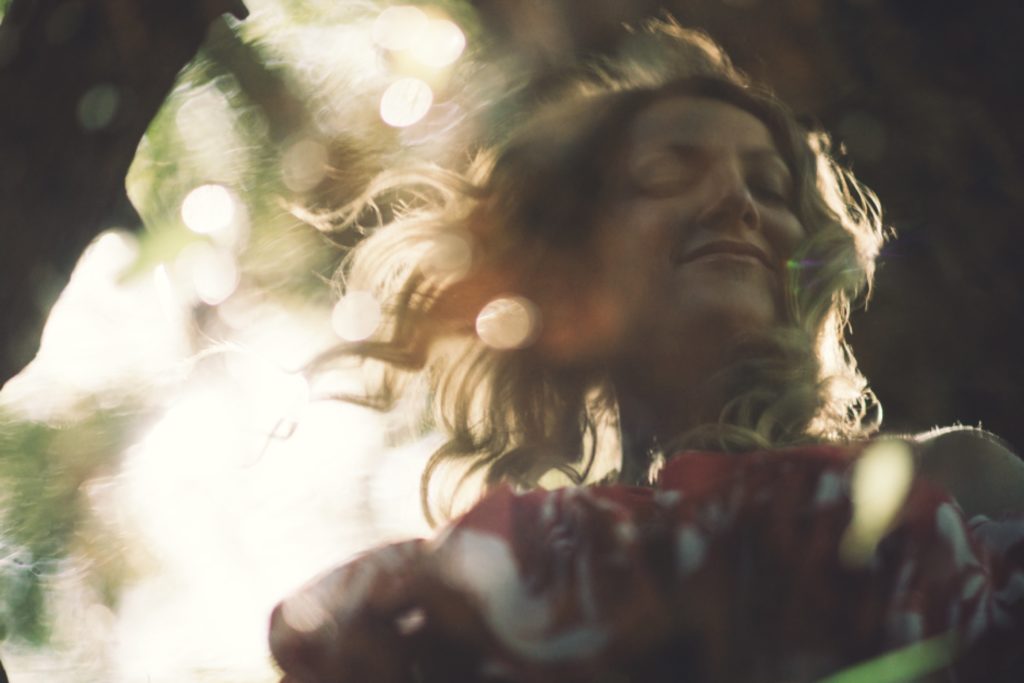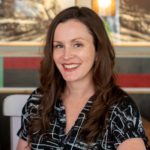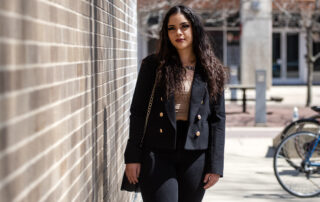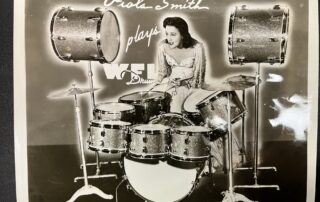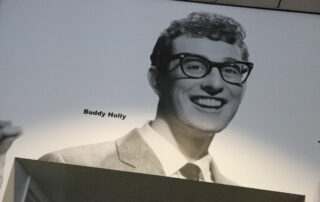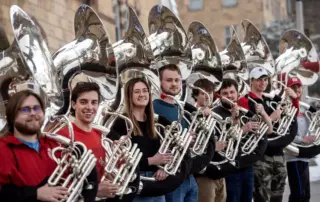About seven years ago, Adriel Denae’s brother challenged her to write out a list of life goals. Since then, the Appleton-based musician has been creating partnerships and channeling her independence to accomplish those goals. They include:
Start skin care business. ✔️ (Launched herbal line, Clary Collection)
Create a space for artists. ✔️ ✔️ (Co-founded The Refuge and Neighborhood in Appleton)
Become a mother. ✔️ (Had a son)
Write an album. ✔️ (Released debut solo album, Adriel Denae, in 2018)
Denae spent many years performing on the road, most notably with Cory Chisel and the Wandering Sons.
“Music for me has always been my therapy,” said Denae. “I’ve been in bands and have always loved the collaborative aspect of making music with other people and even helping in to color in another person’s vision. But when it came down to the idea of sharing my music with other people, my personal songs, that was a real hurdle for me. Just to feel brave enough to do it and confidant enough in my ideas. There’s so much beautiful music in the world. I always had this feeling, ‘Why do we need more?’ or ‘Why should people want to buy it from me?’”
Finally in 2014, Denae gave in to her dream and ventured to Brooklyn, New York to record her debut album. It was produced by Grammy award-winning musician Norah Jones and recorded in her home studio.
Wisconsin Public Radio’s Maureen McCollum recently talked with Denae about her new album, musical upbringing, and inspiration behind the music.
Early Life In Chicago
“I grew up in the Uptown neighborhood of the city, close to Lake Michigan. I grew up in a big old hotel called the Chelsea Hotel. I grew up in a collective with about 500 people that were living communally, running several social programs in the neighborhood, a homeless shelter, and some low income housing buildings. The arts and music was such a natural part of my environment. We didn’t really have TVs, especially when I was little.
My memory being a kid was walking down the halls and hearing music coming from different rooms, people playing their guitars, and singing and stuff. In some ways, we were sort of sheltered from a lot of pop culture. It was a religious group so we didn’t listen to the radio. I didn’t know anything about what was happening in pop music.
When I was 13, they decided the oldies station was okay. ‘My Boyfriend’s Back,’ ‘Leader of the Pack.’ Yeah, a lot of not really feminist songs, now that I think about it. But I was totally captivated by that kind of music. I really, really loved it. I’d come home from school, turn the radio on, and listen all day long.
The culture of the place I was living in was a little more folksy, so that was the style of music I heard a lot. We sang a lot together. My dad also played guitar in a rock band that toured occasionally, so I got to tour with them. My parents were also in a gospel choir, so I loved gospel music.
I really, really loved the songs of my neighborhood, coming out of the churches. We would do this big block party once a year in this bank parking lot, which was a block away from our building. All the choirs from the neighborhood would come and sing and that was the highlight of my year.”
Becoming A Touring Musician
“For anyone who’s tried to make a living touring, you kind of have to do it all the time to make your ends meet. So, that’s how I made that decision. Once I got a taste for that life, there was no turning back for me. I really loved the freedom. I felt like it was really important for me to see our country and understand it a little bit more. Especially growing up in a commune, that’s quite a bubble to live in. Once I got out of that I just couldn’t have enough. I wanted to understand and see everything.
I stopped going to school [at Parkland College] when I was about 24. I really didn’t stop touring full-time until I had my son. I was on tour until the last week before I gave birth. That’s ten years.”
Ending Up In Appleton
“[My first band, Elanors] made friends with some bands that were from the Fox Valley. A lot of us met in Madison, but we’d go up there and play on the weekends. I started gravitating towards people who were like-minded and interesting. That’s how we met The Wandering Sons and Cory [Chisel]. Our bands merged, really. The band I was in broke up. The other two members went and toured with another band and I was kind of left with nothing to do. I was trying to decide if I should get a job or look for another project. Cory invited me to play piano. I didn’t really know how to play piano. I just said I could do it (laughing).
I think I’ve always learned the best with total immersion. So, I went to my dad’s house and asked him to teach me basic 12 bar blues.
I remember I had my first show I had this really dumb notation system where I put the name of the root note and then a smiley face if it was supposed to be major and a sad face if it was minor. It was so dumb. I don’t know I made it through that first set and sang along (laughing).
There’s no better way to learn than to fling yourself at something and to be with gracious people who are all learning, too.”
Inspired By Appleton
“When I was a kid, I never thought I’d live in a city smaller than Chicago and now I can’t imagine living in a city larger than Appleton.
I find there to be a lot of possibility. I really like living in a place where people are building more things together and where that’s doable. As an artist, it’s a really affordable city. There are a lot of creative individuals there and a lot of people who also aren’t putting themselves out as working artists, but are really dedicated to their craft. For the season I’m in as an artist, I’m finding that to be really valuable, to be around people thinking that way. Not so focused on how to commodify their work, but really dedicated to their craft. It’s a city that’s evolving and changing a lot right now. I think it’s really energizing. But it’s taken a minute to find my people and feel at ease and find my personal community.
I live really close to the Fox River. I’m inspired by the stark change in seasons and the ability to observe wildlife. I saw a hawk swoop down right in front of my window this morning. It perched on a branch and went after this chipmunk. It was such a dramatic moment. I kind of wanted to alert the chipmunk, but I also was like, ‘This is life.’ I get so much inspiration from being able to interact with nature and also be in a town. I did not have that in Chicago at all.
The lives of the people I love and how people are processing their realities is fascinating to me. It’s a really fertile place for me right now. So I’m happy to be there for as long as I can.”
Recording Her Debut Album
“I made it in Brooklyn and recorded it in Norah Jones’ home studio. We recorded it really quickly. We tracked most of it live over about nine days. A song or two a day.
When we tracked this record, I had almost no experience recording and singing a lead vocal. I’d done it just a couple times in my life. I’d been singing harmonies for a long, long time. I felt really comfortable doing that. So, tracking this record, doing it live, playing my instrument, and singing with musicians who are so incredibly talented and fast and good, I was terrified. I really thought I was going to royally mess it up and hold up the process. Also, Norah’s such a huge influence and really a musical hero. It was really nerve-wracking.
But, [Norah] created such a lovely environment. I’d never worked with a female producer. I’d never worked with a female engineer. I was so used to being the only female in recording environments. To have that sensibility leading me was so wonderful. Artistically, I felt really open and I was able to just have fun with it. It just wasn’t very hard. It felt really effortless and I really have her to thank for cultivating that.
I have this visual of her through the glass in the studio. When she would get really excited she would jump out of her seat and move with the music. I remember the way she was moving her hands it was almost like…I almost saw her as a painter or something. It really broke down these walls of these ways that we think of art. The process of making the album didn’t just feel musical. It felt like a wider expression. She really approaches music that way. Her ear is so impeccable. She isn’t shooting in the dark. Her sense of melody is really complete.
When we nailed it, I would feel that reaction from her. I found it so easy to entirely trust our progress and our success. She’s really fearless in the studio and fearless with music. She really trusts herself implicitly. And so, that would be probably the most precious thing I walked away with: an access to trusting myself in a deeper way. That was watching her and also it felt like she trusted me and that made it easier to trust myself.”
Becoming A Mother
“I found out I was pregnant just two days before I went out to record in Brooklyn, so my life really dramatically changed in those months of finishing the record. I thought it would just be super simple. I thought I was going to have this baby and he was just going to lay there while I played my piano. And (laughing), it’s really hard to admit that. I just had no idea.
So, there’s a lot of reasons it’s taken four years to put the record out. One being that we wanted to build our own mechanism for releasing music. That’s taken time. But the real honest answer is I’m ready now and I wasn’t before. I needed to go through some things.
My son was born and I felt this huge separation between me and my creative self. I could not get back to her. That’s really what was the hardest thing for me. I just lost my most immediate form of therapy.
He just hated it. I would play the piano and he would just scream. Cory would play the guitar, he would scream. He just didn’t like it. Now he’s almost four and now we understand he gets very emotional when we play music. He just cries. He likes it, but tears just stream down his face. I think he feels an emotion he’s not sure what to do with. Maybe he just didn’t like the sound when he was a baby, too. He feels something really powerful, so it’s uncomfortable for him. And also, he wants our attention all the time. But it’s gotten a lot better! Now he knows how to bang along with his drums and dance!”
Behind The Music
“The song ‘Build A World’ was one of the last ones I wrote before I went to New York. We’d just finished a tour and I had this feeling that a baby was coming into my life soon. I didn’t know if it was going to be my baby. I just felt like this child was coming.
I was in our apartment, we lived in Nashville at the time, and I was home alone. I was thinking about what I would say to a child coming into our world right now. This has only happened to me three or four times in my life. I just sat at the piano and it was just a stream of consciousness. The whole song came out start to finish.
(“Build a World” music video by Oliver Franklin Anderson and Justis Poehls)
There’s another song that I wrote the very next day called ‘Troubles.’ That song has been a personal self-fulfilling prophecy, I guess. So, each time that I perform that, I feel like I uncover something new in myself. It’s one of those magical songs for me. I feel like it’s a gift my subconscious gave me to learn more about myself.
I feel like we’re not supposed to put that stuff out there as entertainers or performers, but I can’t exist any other way. I need to be vulnerable with my art. It’s what heals me If it’s not doing that, it really drains me.
I think this whole record is about me trying to unearth pain that was preventing me from the growth I really wanted. I didn’t want to write a depressing record, but it really is a vulnerable snapshot of the reality of my mind.
These are older songs now. I find my new songs coming out now are a little more direct. This album’s group of songs are sort of a bird’s eye view of the issues I was tackling at the time. Through birthing these songs, they’ve helped me go deeper in those places. When I sing these songs now, that’s what I feel like I’m doing, I’m looking from up above.
The whole process of making this record was a real exercise of courage for me. Getting off of the edge of what you want and where you are and making choices to dive into life. That means diving into the joy of things and the pain of things, but not being afraid of that. The last five years of my life I really shifted in that way. Life is really different now, but I think those were concepts I was really trying to tease out with songs.
I’ve spent a lot of time thinking about what I want out of my music in terms of what I share with other people. I know what I want for myself. I really focused in on this idea and maybe this sounds trite, but I hope there’s a sense of lightness and healing that comes through. It’s not that I hope it makes everyone feel good necessarily, but I hope that it finds the right ears and that people can receive some of that intention. I really work hard to put that intention into what I create. It hasn’t always been that way, but these songs for sure and everything I’m working on now, I really hope that people feel some healing.”
(This interview has been edited for brevity and clarity.)
